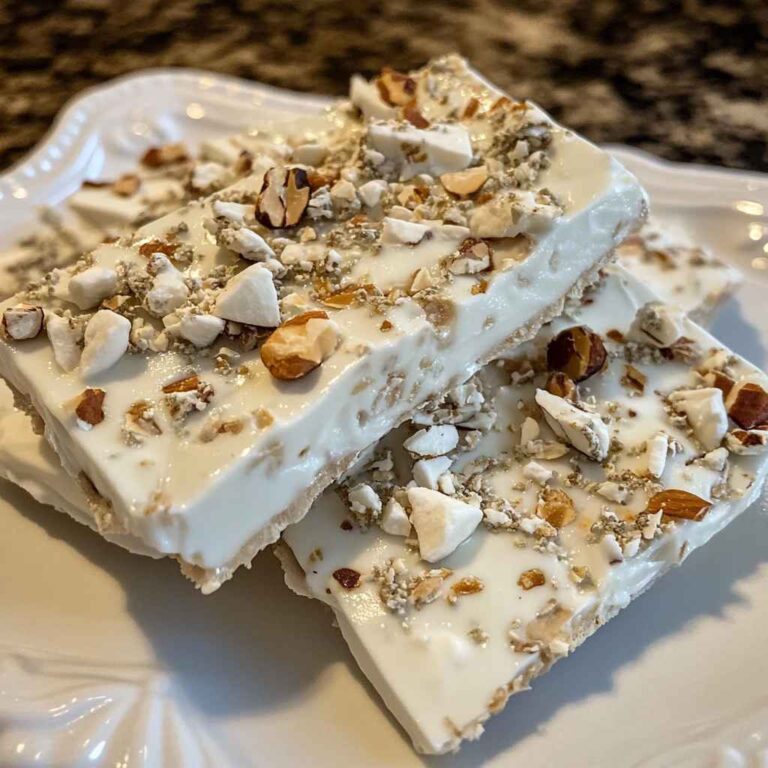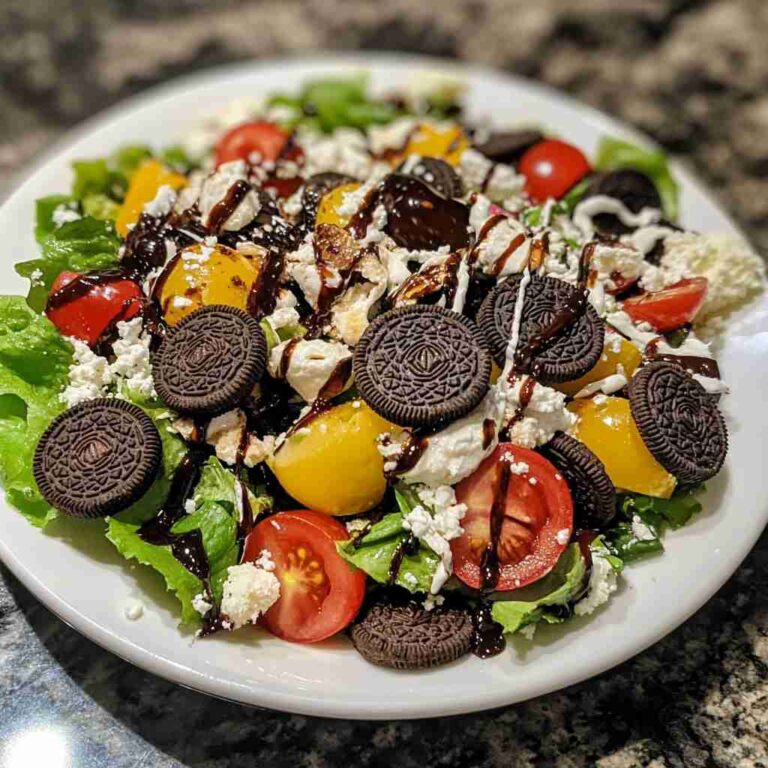The Ultimate Caesar Salad Dressing Recipe

If there’s one salad dressing that has stood the test of time, it’s the iconic Caesar salad dressing. This rich, creamy, and tangy concoction has been a beloved staple on restaurant menus and in home kitchens for decades, and for good reason. Not only does it elevate a simple salad to new heights, but it’s also surprisingly easy to make at home with just a few simple ingredients.
In this comprehensive guide, we’ll walk you through the step-by-step process of creating the perfect Caesar salad dressing from scratch. Get ready to impress your friends and family with a homemade version that rivals even the most renowned restaurants.
❤️ Why You’ll Love This Recipe ❓
What sets this Caesar salad dressing recipe apart is the perfect balance of flavors. The creamy texture is achieved through the emulsification of egg yolk, while the tangy notes come from the combination of lemon juice, Dijon mustard, and Parmesan cheese. The addition of anchovies (or anchovy paste) adds a savory depth that’s integral to the classic Caesar taste.
But beyond the incredible flavor, this recipe is also incredibly versatile. You can use it not only as a dressing for your Caesar salad but also as a dip for raw vegetables, a topping for grilled meats, or even as a spread for sandwiches. And the best part? It’s incredibly easy to make, with no fancy equipment required.
🛒 What You Need to Prepare Caesar Salad Dressing ❓
• 2 tablespoons lemon juice
• 2 tablespoons Dijon mustard
• 2 anchovy fillets, minced (or 1 teaspoon anchovy paste)
• 2 garlic cloves, minced
• 1/2 cup olive oil
• 1/2 cup grated Parmesan cheese
• 1/4 teaspoon salt
• 1/4 teaspoon black pepper
The beauty of this Caesar salad dressing is that most ingredients are pantry or refrigerator staples. The combination of creamy egg yolks, tangy lemon juice, and savory Parmesan cheese creates the classic Caesar flavor profile that has made this dressing a perennial favorite.
📝 How to Make Caesar Salad Dressing Step-by-Step ❓
• Step 2: Slowly drizzle in the olive oil while whisking constantly to emulsify the dressing. Continue whisking until the mixture is thick and creamy.
• Step 3: Stir in the grated Parmesan cheese, salt, and black pepper, and mix until fully incorporated.
• Step 4: Taste the dressing and adjust seasoning as needed, adding more lemon juice for tanginess or Parmesan for a richer flavor.
• Step 5: Cover and refrigerate the dressing for at least 30 minutes to allow the flavors to meld before serving.
⏱️ Timing Overview
• Chilling time: 30 minutes
• Total time: 40 minutes
Compared to store-bought Caesar dressings, which can contain preservatives and artificial ingredients, this homemade version saves you time and allows you to control the quality of the ingredients. Plus, the entire process takes just 40 minutes, making it a quick and easy addition to your salad repertoire.
👩🏻⚕️ Nutritional Information
Per serving (based on 8 servings):
• Protein: 3g
• Carbohydrates: 1g
• Fat: 16g
• Fiber: 0g
• Sodium: 240mg
These Caesar salad dressings provide approximately 8% of your daily protein requirements and 7% of your daily fat needs, making them not just delicious but nutritionally valuable as well.
🔄 Healthier Alternatives for the Recipe
• Lower-carb version: Omit the Parmesan cheese or use a low-carb cheese alternative to reduce the carbohydrate content.
• Dairy-free adaptation: Substitute the Parmesan cheese with a dairy-free alternative, such as nutritional yeast or almond-based Parmesan.
• Added protein: Fold in a tablespoon or two of Greek yogurt or cottage cheese to boost the protein content.
• Boost vegetables: Blend in a handful of fresh herbs, such as parsley or basil, for an extra nutrient boost.
These modifications can reduce calories by up to 20% or adapt the recipe for specific dietary needs without compromising the fundamental flavor profile of the Caesar salad dressing.
🍽️ Serving Suggestions
• Use as a dip for raw vegetable crudités, such as carrots, celery, and cherry tomatoes.
• Drizzle over grilled or roasted salmon or chicken for a delicious Caesar-inspired main dish.
• Toss with cooked pasta for a creamy Caesar pasta salad, or use as a sandwich spread for a Caesar-themed wrap.
• Create a Caesar salad platter with the dressing, romaine lettuce, croutons, and additional toppings like grilled shrimp or bacon bits.
❌ Common Mistakes to Avoid
• Insufficient chill time: Allowing the dressing to chill for at least 30 minutes helps the flavors meld and the texture to thicken.
• Skipping the anchovies: While optional, the anchovies (or anchovy paste) provide an essential savory depth that is crucial to authentic Caesar dressing flavor.
• Using low-quality ingredients: Opt for fresh, high-quality eggs, Parmesan cheese, and olive oil for the best possible taste and texture.
• Forgetting to adjust seasoning: Taste the dressing and adjust the lemon juice, Parmesan, salt, and pepper to your personal preference.
🧊 Storing Tips for the Recipe
These homemade Caesar salad dressings retain their quality remarkably well:
• Freezing: The dressing can be frozen for up to 2 months. Thaw in the refrigerator overnight before using.
• Reheating: If the dressing separates or thickens too much in the refrigerator, simply whisk it vigorously to restore the creamy texture.
❓ FAQs
Can I make the Caesar dressing ahead of time?
Absolutely! The dressing can be made up to 5 days in advance and stored in an airtight container in the refrigerator. Just be sure to give it a good stir or whisk before serving to recombine the ingredients.
Can I substitute the raw egg yolks?
Yes, you can use pasteurized egg yolks or even a small amount of mayonnaise in place of the raw egg yolks. This will provide the same creamy texture without the food safety concerns of raw eggs.
Is there a dairy-free version of this recipe?
Yes, you can easily make a dairy-free Caesar dressing by substituting the Parmesan cheese with a dairy-free alternative, such as nutritional yeast or an almond-based Parmesan. Just be sure to adjust the seasoning to taste.
What if my dressing seems too thick or too thin?
If the dressing is too thick, you can thin it out by slowly whisking in a bit more lemon juice or olive oil. If it’s too thin, continue whisking to further emulsify the ingredients, or let it chill in the refrigerator for 30 minutes to thicken up.
Can I add other ingredients to the Caesar dressing?
Absolutely! The basic recipe is highly versatile, so you can experiment with additions like Worcestershire sauce, Dijon mustard, or even finely chopped fresh herbs like parsley or chives. Just be sure to taste and adjust the seasoning accordingly.
Conclusion
These homemade Caesar salad dressings represent the perfect balance of convenience, flavor, and presentation. Whether you’re serving them as a topping for a crisp romaine salad or using them as a dip for fresh vegetables, they’re sure to impress with their creamy texture and bold, tangy taste.
The versatility of this recipe allows for countless variations to suit your taste preferences and dietary needs. With simple ingredients and straightforward preparation, these Caesar dressings demonstrate that sophisticated flavors don’t require complicated techniques – just quality ingredients and a little bit of care in the mixing process.
So why settle for store-bought when you can easily create a restaurant-quality Caesar salad dressing right in your own kitchen? Give this recipe a try, and prepare to be amazed by the incredible flavor and convenience it provides.
Print
The Ultimate Caesar Salad Dressing Recipe
- Total Time: 40 minutes
Ingredients
• 2 egg yolks
• 2 tablespoons lemon juice
• 2 tablespoons Dijon mustard
• 2 anchovy fillets, minced (or 1 teaspoon anchovy paste)
• 2 garlic cloves, minced
• 1/2 cup olive oil
• 1/2 cup grated Parmesan cheese
• 1/4 teaspoon salt
• 1/4 teaspoon black pepper
Instructions
• Step 1: In a medium bowl, whisk together the egg yolks, lemon juice, Dijon mustard, minced anchovies (or anchovy paste), and minced garlic until well combined.
• Step 2: Slowly drizzle in the olive oil while whisking constantly to emulsify the dressing. Continue whisking until the mixture is thick and creamy.
• Step 3: Stir in the grated Parmesan cheese, salt, and black pepper, and mix until fully incorporated.
• Step 4: Taste the dressing and adjust seasoning as needed, adding more lemon juice for tanginess or Parmesan for a richer flavor.
• Step 5: Cover and refrigerate the dressing for at least 30 minutes to allow the flavors to meld before serving.
- Prep Time: 10 minutes
- Chilling Time: 30 minutes
- Category: Dessert
- Cuisine: Americans
Keywords: The Ultimate Caesar Salad Dressing Recipe






